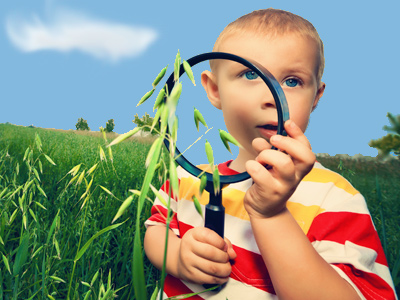
Ask the AI Tutor
Need help with Investigating - Asking Questions? Ask our AI Tutor!
AI Tutor - Lucy
Connecting with Tutor...
Please wait while we establish connection

We know that plants grow faster in the summer but do children?
Investigating - Asking Questions
Science starts with questions. In this quiz, you'll explore how to ask clear, curious questions to investigate puddles, toys, plants and more.
1 .
2 .
3 .
Which one of these questions could you investigate at school?
Which is the stretchiest modelling clay?
Which is the nicest modelling clay?
Who makes modelling clay?
How much modelling clay have we got?
Answers 3 and 4 are questions, but they are easily answered. They don’t need an investigation. Answer 2 is too vague - what do you mean by ‘nice’?
4 .
Which one of these questions would be good to ask in science?
Which word is longest - reptile, bird or mammal?
What are the differences between reptiles, birds and mammals?
Can you draw a reptile?
What is a good story about a bird?
Where might you look to find out about the differences between reptiles, birds and mammals?
5 .
Anna knows that plants grow quicker in the summer than the winter. Which one of these questions would be fun for Anna to investigate?
Do children grow quicker in the summer than the winter?
Do children grow?
Do children grow older each year?
Do children have birthdays?
How would you find out if children grow quicker in the summer or not?
6 .
Which one of these questions would you have to investigate outdoors?
How quickly does grass grow again after it has been mown?
What is the best way to grow cress?
How much water do plants need?
How deep should I plant bean seeds?
Which one of these do you think would be the most interesting investigation?
7 .
Sasha has decided to investigate this question: ‘What is the best material to make an umbrella?’
Sasha decides to put the question another way. Which is the best question for him to ask?
Sasha decides to put the question another way. Which is the best question for him to ask?
Which material is heaviest and lets the water through?
Which material is lightest and waterproof?
Which material is most colourful?
Which material is lightest and most colourful?
Umbrellas have to stop the rain. They need to be waterproof
8 .
Toni wants to do an investigation in her class. She is going to ask people a question. Which one of these questions would be the best one to investigate?
Do you know what a rainbow is?
Do you like the colour blue?
Do you like rainbows?
Which colour in the rainbow do you like best?
The fourth question has more possible answers. The other questions only have yes and no answers
9 .
All of these are questions. Some have simple answers. But which one could you investigate?
How many months are there in a year?
Which month in the year is the warmest?
Which is the shortest month in the year?
Which is the first month of the year?
How would you investigate which month is the warmest?
10 .
Scientists investigate all these questions. But which one of these questions could you investigate in a school?
What are the rocks on the planet Mars made from?
Why are there no green plants at the bottom of the oceans?
Why are there fewer parrots in the Amazon rain-forest?
What sort of places do woodlice like to live in?
How many of these questions would you like to investigate?
**Unlimited Quizzes Await You! 🚀**
Hey there, quiz champ! 🌟 You've already tackled today's free questions.
Ready for more?
Ready for more?
🔓 Unlock UNLIMITED Quizzes and challenge yourself every day. But that's
not all...
not all...
🔥 As a Subscriber you can join our thrilling "Daily Streak" against other
quizzers. Try to win a coveted spot on our Hall of Fame Page.
quizzers. Try to win a coveted spot on our Hall of Fame Page.
Don't miss out! Join us now and keep the fun rolling. 🎉
**Unlimited Quizzes Await You! 🚀**
Hey there, quiz champ! 🌟 You've already tackled today's free questions. Ready for more?
🔓 Unlock UNLIMITED Quizzes and challenge yourself every day. But that's not all...
🔥 As a Subscriber you can join our thrilling "Daily Streak" against other quizzers. Try to win a coveted spot on our Hall of Fame Page.
Don't miss out! Join us now and keep the fun rolling. 🎉
















